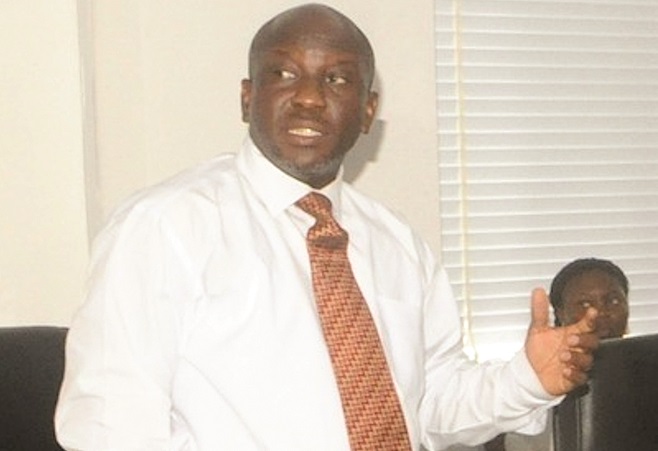
Fight against galamsey yields results
The national campaign against illegal mining (galamsey) is yielding some positive results, as the quality and levels of water in some water bodies have improved.
This has enabled the Ghana Water Company Limited (GWCL) to resume the operation of some of its treatment plants that were shut down due to the impact of ‘galamsey.’
Speaking to the Daily Graphic in Accra yesterday, the Head of Communications, GWCL, Mr Stanley Martey, said the company was forced to shut down most of its treatment plants because the water had become heavily polluted with heavy metals such as mercury and cyanide and had become too turbid to treat due to ‘galamsey’ activities.
He said the water levels in the water bodies also reduced drastically due to water turbidity and the diversion of river routes from the intake points of the treatment plants, making it impossible for water to be drawn for production.
“Currently, because the water blockage due to ‘galamsey’ activities has been removed, water is flowing freely to the intake points of the water treatment plants. The onset of the rains has also helped to reduce water turbidity, thereby improving the quality of raw water taken for potable water production,” he said.
Mr Martey explained that water bodies such as River Pra, Densu, Birim, the Volta Lake and Tano River were the only sources of raw water for the company’s treatment plants nationwide and, therefore, when the water levels and quality became unfavourable for production, the GWCL had to shut down.
Plants that have resumed operations
The water treatment plants that have resumed operations include the one at Kyebi, which has the capacity of producing 30,000 gallons per day.
Others include the Bunso treatment plant with a capacity of 100,000 gallons a day, Anyinam treatment plant also with a capacity of 30,000 gallons per day and the Osino plant with a capacity of 30,000 gallons per day.
The rest are the Daboase, Kyebi, Odaso and Abessim treatment plants.
Mr Martey said the government and media fight against ‘galamsey’ was yielding positive results.
He, therefore, called on stakeholders not to relent in their efforts to address the ‘galamsey’ menace to sustain the production of quality water for the public.
He said the situation could be made even better if the fight against ‘galamsey’ was sustained.
“We’ve seen some improvement and we are happy about the campaign against ‘galamsey’ activities. I hope it will be sustained,” he said.
Currently, the country has achieved 77 per cent potable water coverage, meaning that 77 people out of every 100 sampled have access to potable water, but stakeholders have been warned that soon many more people will lose access to potable water due to water pollution.
They have also warned of a possible importation of water due to a looming water crisis underpinned by the impact of galamsey on water bodies.
Mr Martey said the impact of human activities on water resources was more dreadful, compared to natural causes and called for cooperation among stakeholders to address the pollution of water bodies.
Background
Many water bodies and water treatment plants across the country have been under severe threat as the menace of ‘galamsey’ heightens.
Illegal small-scale mining, popularly referred to as ‘galamsey’, has gained momentum in numerous communities. The lucrative nature of ‘galamsey’, although damaging and illegal, has attracted some recalcitrant foreigners into the industry.
Despite some of the benefits it brings to the communities such as employment, revenue, decrease in rural-urban migration and reduction in crime, according to a study by the Centre for Scientific and industrial Research-Water Research Institute (CSIR-WRI), its negative implications far outweighed its benefits, threatening human sustainability in Ghana.
Media campaign
On April 4, 2017, the media launched the media coalition against illegal mining to intensify the national campaign against galamsey and since then most public and private institutions such as the CSIR, the National Commission for Civic Education (NCCE), the Christian Council of Ghana, Parliament and some government institutions, have pledged to support the campaign in their respective capacities.
Writer’s email doreen.andoh@graphic.com.gh
